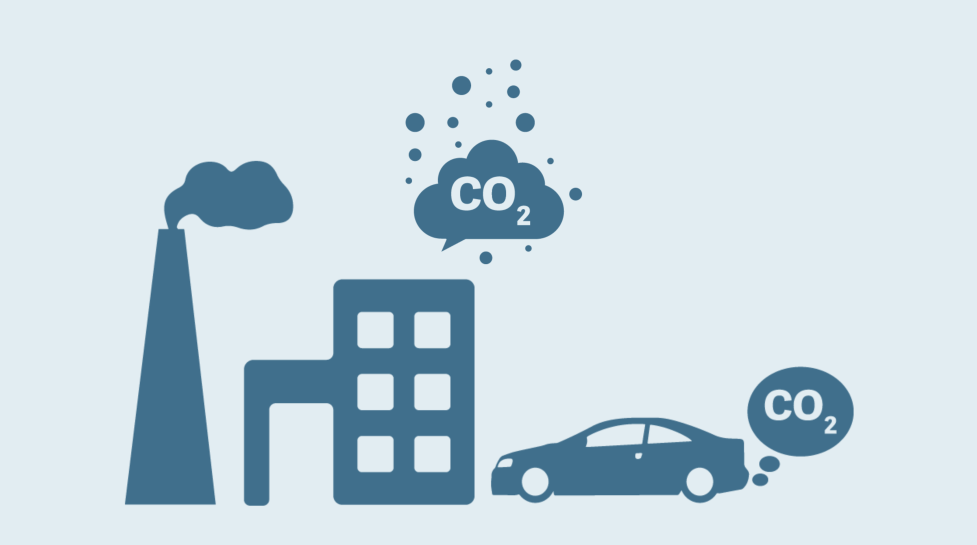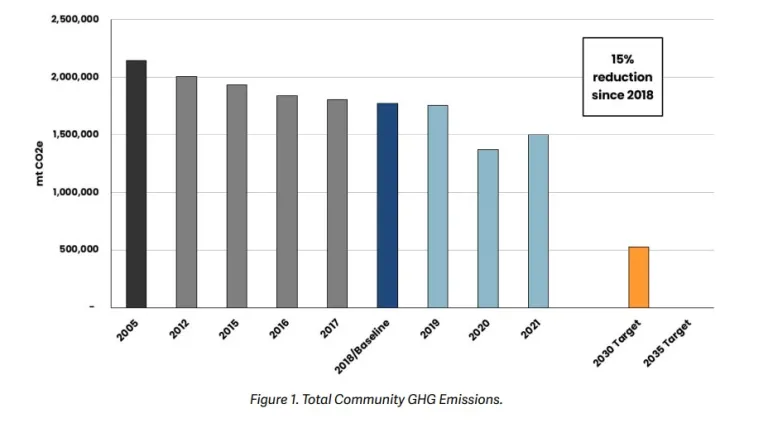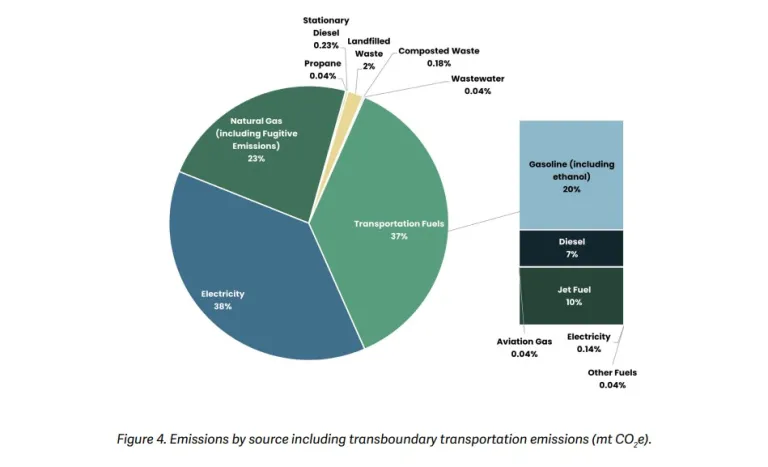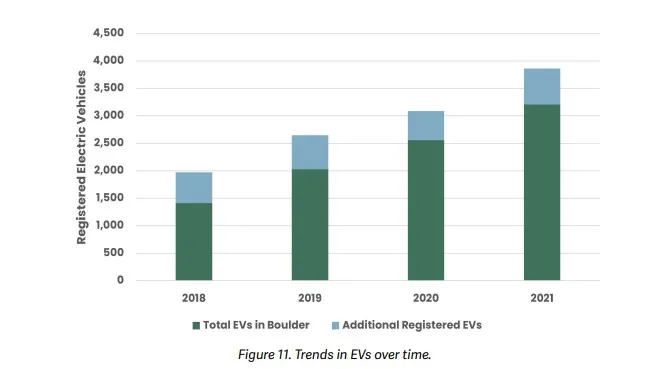Community sees 15.5% reduction in greenhouse gas emissions since 2018.
Community sees 15.5% reduction in greenhouse gas emissions since 2018.
The city’s newly released 2021 Greenhouse Gas Inventory shows that community-wide emissions have fallen 15.5% since 2018.
Greenhouse gases, such as carbon dioxide and methane, trap heat in Earth’s atmosphere, which contributes to climate change. The annual report highlights how Boulder has made headway in reducing emissions and identifies systems that must be changed to reach the city’s climate targets.
The top sources of Boulder’s emissions were electricity use (38%), on-road transportation (27%), aviation (10%) and natural gas (23%).
This demonstrates the continued importance of moving away from fossil fuels and adopting cleaner sources to power the energy grid, like solar and wind. Boulder must also accelerate the transition to efficient, electric technologies and cleaner modes of transportation. A key driver of this work is the partnership between the city and Xcel Energy, which aims to achieve 100% renewable energy and zero electricity-sector emissions by 2030.
Media
Emissions rose slightly from 2020 to 2021, a rebound likely caused by the transition back to in-person work, school and recreation as COVID-19 eased.
“The past two years show just how quickly systems can change, but we need to support strategies that produce lasting emissions reductions,” said Benjamin Katz-Moses, the city’s senior sustainability data analyst. “The pandemic led to an unprecedented drop in transportation emissions as our community drove fewer miles and took fewer flights. But as we know, the sudden shutdown of our systems caused serious health and financial impacts in our community.”
“With this in mind, we are working to redesign systems in ways that are resilient and just,” said Climate Initiatives Director Jonathan Koehn. “Reaching our targets won’t be easy, but the pandemic has showed us that systems change is possible, and we have the solutions and tools to move forward with equity as a priority.”
Boulder is well positioned to take action.
The inventory comes just weeks after Boulder voters approved a new Climate Tax that will fund ongoing programs and new projects that take on the climate crisis, build resilience and center equity. It also follows Boulder receiving an “A” from the Carbon Disclosure Project, an international nonprofit that recognizes cities for bold climate action and transparency. Learn more about the Climate Tax and the city’s approach to climate action online.
More information on the community greenhouse gas inventory and detailed emissions data can be found on the city’s website.
Be Part of Collective Change
Community members can do their part to reduce local emissions by lowering their energy use, taking fewer flights and choosing to bike, bus or walk whenever possible. They can also take advantage of several city-supported energy rebates and resources that support clean energy upgrades in homes and on the road.
“Climate change is innately difficult to solve,” said Koehn. “It’s easy to feel like your personal actions don’t matter, but they really do. Individual action leads to collective action, which encourages systems change. So, keep planting pollinator gardens, insulating your home and riding your bike for a better world.”
Discover more ways to take local climate action by visiting the city’s website.



